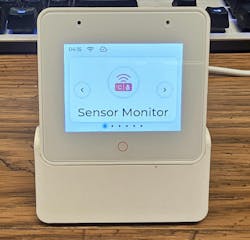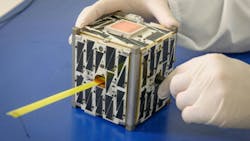The Problems Surrounding New Engineers—if They're Available
What you’ll learn:
- Why new engineers and programmers are important.
- Why the availability of new graduates is changing.
- The impact of the availability of new graduates could be significant.
Extrapolating current norms from past experience can be challenging and often overlooks the massive changes that have occurred over the years. I would still recommend engineering and software development remain fields to potential engineers and software developers, as do most practicing engineers and developers based on our annual Salary Survey results.
But finding and hiring engineers has been getting progressively harder. The latest changes in United States policies have made this process much more difficult for everyone.
Learning Engineering Skills
My path to a professional engineering job was through Georgia Tech and its co-op program, but prior to that, I had jobs like a newspaper route and working at a fast-food joint. These days, newspapers have gone digital. Before that, though, the paper routes moved to full-time delivery people. Fast food hasn't changed this much, but order taking is now relegated to large screen kiosks or smartphone apps. Even food preparation has been semi-automated.
Picking up technical skills prior to college is a bit easier these days. Playing with vacuum tubes, CRTs, and voltmeters is a far cry from the Espressif ESP-S32-Box-3B I've been toying with for too long (Fig. 1). The 32-bit micro includes artificial-intelligence (AI) acceleration, allowing for on-board voice command recognition. My high school computer was a Teletype with punch paper tape connected via modem to the nearby college’s BASIC minicomputer.
There are many more science and engineering competitions these days as well, such as the International Science and Engineering Fair (ISEF) and FIRST Robotics. Of course, a plethora of open-source software and information is available on the internet.
Changing Educational and Hiring Landscape
The U.S. once led in education with government support for research as well as collaboration with organizations like NASA and DARPA. The DARPA Grand Challenge was a precursor to the self-driving cars of today. And NASA CubeSats are enabling budding engineers to put projects into space (Fig. 2).
Many projects have been recently discontinued or downsized. Universities like Harvard have had funding threatened, among other things, making it hard for current students to complete their degrees.
Immigration status and even attendance of colleges and universities by foreign students is being questioned. Many of these students would be hired in the U.S.; in fact, a large number of new companies have been started in the U.S. by these graduates.
When it comes to hiring, AI is in the mix on both the engineer and human resources side of things. It’s being used for creation of resumes, selection of resumes, and even AI-driven interviews. The extensive use of online job search and hiring website sites can be extremely frustrating to all involved, except maybe the site’s owners.
What to Do with New Hires
AI is creating a mess for new hires, too.
Everyone seems to be trying to include AI, typically as large-language-model (LLM) generative AI chatbots into their workflow. In theory, it's supposed to enable advanced users to have agentic AI handle chores that would have gone to new hires. Likewise, they can be used to help train new hires, but this assumes that a trained system is available.
Remote work also comes into play, assuming you land a job as a new engineer or if you've just hired one. The assumption of many is that in-person interaction is best for engaging new hires, though this is more of a cultural issue. Those adept and comfortable with remote tools will work well in a remote setting.
Chatbots and agentic AI can be useful for new engineers but they are a challenge as well. They can point out new things, help find information, etc. However, new hires may not be able to determine when the AI support is right, wrong, or confused. An experienced person still tends to be the best at moving new developers into the flow.
Here are some Quick Polls that might be useful along with the new one below.
About the Author
William G. Wong
Senior Content Director - Electronic Design and Microwaves & RF
I am Editor of Electronic Design focusing on embedded, software, and systems. As Senior Content Director, I also manage Microwaves & RF and I work with a great team of editors to provide engineers, programmers, developers and technical managers with interesting and useful articles and videos on a regular basis. Check out our free newsletters to see the latest content.
You can send press releases for new products for possible coverage on the website. I am also interested in receiving contributed articles for publishing on our website. Use our template and send to me along with a signed release form.
Check out my blog, AltEmbedded on Electronic Design, as well as his latest articles on this site that are listed below.
You can visit my social media via these links:
- AltEmbedded on Electronic Design
- Bill Wong on Facebook
- @AltEmbedded on Twitter
- Bill Wong on LinkedIn
I earned a Bachelor of Electrical Engineering at the Georgia Institute of Technology and a Masters in Computer Science from Rutgers University. I still do a bit of programming using everything from C and C++ to Rust and Ada/SPARK. I do a bit of PHP programming for Drupal websites. I have posted a few Drupal modules.
I still get a hand on software and electronic hardware. Some of this can be found on our Kit Close-Up video series. You can also see me on many of our TechXchange Talk videos. I am interested in a range of projects from robotics to artificial intelligence.



